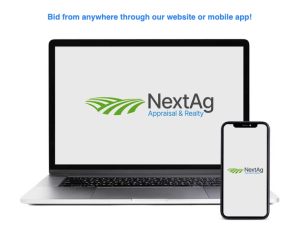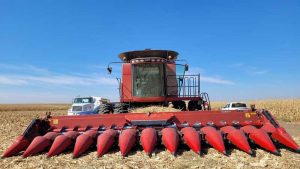
For an investor to benefit from the asset’s total appreciation, good farmland management is essential. Nowadays, farming involves more than just growing crops; landowners and farmers also need to take care of issues like profitability, fertility, conservation, and taxes, to name a few. To maximize the growth and revenue of investment farms, a qualified and experienced farm manager is crucial.
A tailored farm management plan and oversight will align the interests of the farmer and landowner to maximize their return on investment because not all farms are made equally (ROI). To run a farm effectively, one must concentrate on the following things:
- Profitability
- Production
- Conservation
- Capital Improvements
- Communication
- Leasing
- Fertility
- Insurance
- Taxes
The degeneration of agriculture or a severe loss in ROI can result from neglecting even one of these essential responsibilities. Although the economic growth hasn’t always gone back to the landowners, farming has emerged during the past ten years as one of the most lucrative industries. We predict that, nationwide, landowners only receive, on average, 50% of their prospective rental income. This implies that American farmers are passing up $25 billion in rental money. Professional farm management services will enable investors to maximize their return on investment and to own a long-lasting asset.
Profitability
Producing food for an expanding population and giving its owner sporadic revenue flow with a stable appreciation upside make productive cropland valuable on numerous levels. According to the USDA, U.S. cropland has given investors a 10.6% annual return over the past 14 years through appreciation and rental agreements. U.S. farmland is well-positioned to continue appreciating, yielding annual rental rates of over 5% of the land’s value due to worldwide demand for commodities such as corn, soybeans, and wheat. Every investor’s portfolio that is properly diversified should include farmland.
Farm management is crucial in maximizing annual ROI. Every farm should develop in value over time and generate revenue for its owners annually. With modern farm management, landowners may anticipate considerably more profitability.
Production
Monitoring crop conditions are especially crucial in specific leases, such as flex and custom farming, where the landlord has upside potential for the property’s production. Farmers and farm managers collaborate to ensure that climate-appropriate seeds were planted for the future growing season and that planting was successful.
Farm managers stay in touch with operators during the planting season to learn how the crops are doing; this will assist create a solid historical dossier for the property. Future buyers prefer properties with regular yields, farmland with proven yields of 200 bushels of corn will be worth more than one with fluctuating production history and identical soil quality.
Farm managers will record yield information from the harvest for the property’s historical records. The farm manager will frequently receive a yield map from the operator, which shows where the field’s highest yielding spots are and other characteristics like compaction or poor drainage. Locating the poorly drained sections of the property is sometimes. A manager will then investigate where extra drainage relief is required.
Conservation
Perhaps the most crucial resource for maintaining life in a populated world is farmland. Farmland maintenance and conservation are vital if we are to feed the world’s expanding population. The Natural Resource Conservation Service was created by the USDA to protect our resources (NRCS). The NRCS assists landowners with decreasing soil erosion, promoting wildlife habitat, improving water quality, expanding water supplies, and lessening flood and other natural disaster damage.
Farmland owners have access to several programs; the ones they use most frequently include the Conservation Reserve Program (CRP), Grassland Reserve Program (GRP), Water Bank Program (WBP), Wetland Reserve Program (WRP), and Emergency Watershed Program (EWP). The landowner receives yearly payments, and the contracts typically run for 10 to 15 years. However, the management must demonstrate excellence and dedication to qualify for these programs.
Capital Upgrades
The farm manager and owner should aim for optimal farmability, which includes capital improvement projects, to maximize appreciation. Farm managers can provide projects that can accommodate any landowner’s budget using various capital improvement strategies. Access, erosive processes, and drainage are all common capital upgrades. These upgrades include investing in drain tiles, adding retaining walls, and extreme measures like installing waterways, ditches, terraces, and more.
Communication
Clear communication is essential to ensuring smooth client-manager relations. Each management task has a purpose, covered in detail in the paragraphs above. Communicating why duties are necessary will keep all parties on the same page.
Usually, the farm manager will provide a written annual report, highlighting the previous farming season, the outlook for the coming season, and potential capital improvement projects. This helps the client to document the farming operation and better understand their investment.
Leasing
The farm manager’s interactions with the tenant operator are an important aspect of their work. The operator you choose can make or break your investment in agriculture. The operator will assist in assessing a property’s fertility, productivity, conservation, and aesthetics in the short- and long-term. An unmanaged year of farming may do a lot of harm to a piece of property.
Managers will speak with qualified farmers and carry out an in-depth investigation of the tenant’s business to ensure they choose the best renter. Background checks are crucial since lenders and local contacts can provide more light on a farmer’s creditworthiness.
There should be a sizable pool of candidates competing for a particular rental property, according to the manager. Landlords will receive the highest rent feasible if there is competition among operators for leasing a facility. A smart manager will be aware of the local market rent and start bargaining from there.
A decent farm manager is distinguished from a great farm manager by choosing the appropriate sort of lease. Each lease has a unique cash flow and risk profile. The owner and management must be on the same page, at ease with the selected lease, and aware of the extent of the landlord’s risk exposure.
Four lease types are frequently employed:
- Cash Rent Lease
- Flex Lease
- Crop-Share Lease
- Custom Farm Lease
Though each lease is unique, they all share two crucial characteristics: cost and duration.
Fertility
Farm managers collaborate with farmers to assess the property’s fertility using soil samples once harvest is over. Then, farmers start planning their input purchases for the upcoming year. To ensure that the right amount of fertilizer is used to produce the best yields, farmers analyze the soil fertility using soil samples at least every other year.
Farmers should not apply more fertilizer than their soil’s Cation-Exchange Capability (CEC) can tolerate because that would result in waste. The quantity of nutrients soil can effectively absorb at a particular pH level is known as soil CEC. Overfertilization can result in fertilizer runoff and waste if the soil has a low CEC.
Insurance
A good farm manager will go above and beyond to ensure that a customer has liability insurance. Due to the yearly usage of heavy equipment on a specific land, farming can have numerous occupational hazards. Accidents might occur, so it’s crucial to ensure that a customer is shielded from liability. Although a farm manager won’t often administer insurance, it is their responsibility to guide the client through the procedure and offer assistance.
Taxes
Annual property taxes must be settled by the due dates, which change from state to state. To ensure that their client complies, a manager must be aware of each state’s deadlines since some clients may own properties in numerous states. The education of a customer regarding property taxes is crucial to a manager’s responsibilities because failure to pay property taxes could result in fines on the property.





